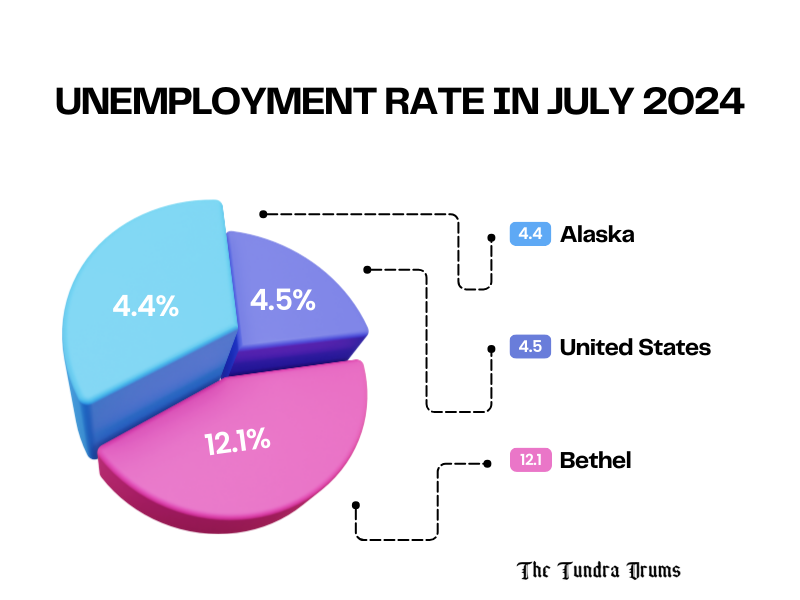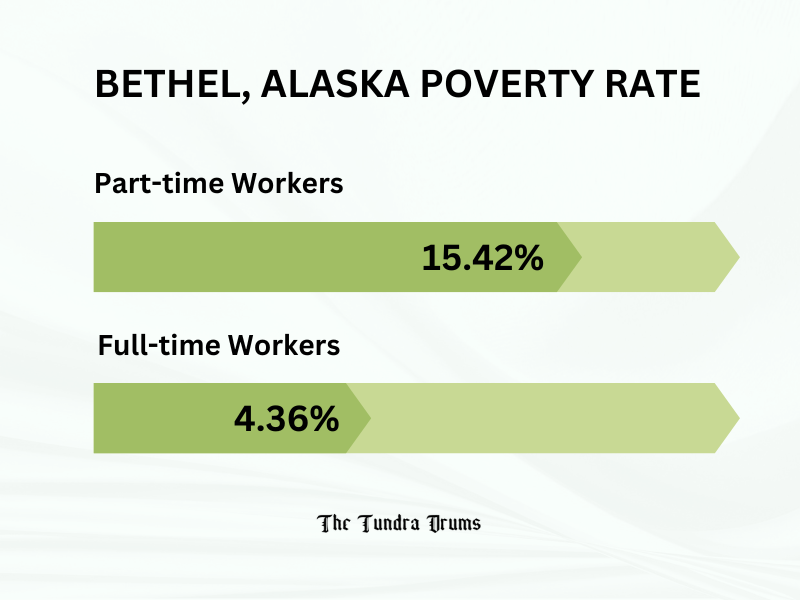Bethel, Alaska experiences unique challenges regarding employment and income stability. Seasonal employment affects income stability, especially in industries like fishing, tourism, and construction, which are most active during the warmer months. While these jobs offer vital employment opportunities, they also lead to job availability and income fluctuations throughout the year.
Seasonal Employment Peaks and Declines in Bethel, Alaska
During the summer, Bethel’s employment opportunities rise sharply due to the influx of tourists and outdoor work. However, once winter sets in, tourism dwindles, and jobs in fishing and construction slow down significantly. This creates a gap for many workers who rely on seasonal employment as their primary source of income.

According to the latest data, Bethel’s unemployment rate in July 2024 was 12.1%, considerably higher than the state average of 4.4% and the national rate of 4.5%. This shows how employment rates can change depending on the time of year, leaving many workers without steady work in the off-season.
Seasonal Employment Affects Income Stability in Bethel, Alaska
Bethel’s median household income is $100,852, which appears healthy, but the reliance on seasonal jobs means income can vary significantly. Families dependent on these temporary positions may struggle to maintain financial stability during the off-peak months. Workers who secure year-round employment tend to have a more stable income, but those relying solely on seasonal jobs can experience financial stress.

For instance, the poverty rate for individuals working part-time or seasonally is around 15.42%, much higher than the 4.36% rate for full-time workers. This indicates that while seasonal jobs are essential, they do not provide the financial security that full-time, year-round positions offer.
Why Does it Matter for Bethel, Alaska Economy?
Seasonal employment is a cornerstone of Bethel’s economy, but it also creates challenges for income stability. Many residents rely on these temporary jobs, so they must deal with months of underemployment or unemployment. This economic fluctuation puts pressure on families, forcing them to plan for off-peak times.
One solution to these financial challenges is exploring passive income opportunities, such as online businesses, investments, or rental properties, which can provide additional financial security during the off-season. This makes financial planning and access to supplementary income sources critical for long-term economic security in the region.
Conclusion
Seasonal employment is necessary to Bethel’s economy, providing much-needed job opportunities during peak seasons like summer. However, this reliance on seasonal work can lead to financial instability for many workers, as income often drops during the off-season. To ensure long-term economic security, residents must plan carefully and explore other income sources during low-employment months. Understanding these seasonal patterns can help workers and policymakers find solutions for more stable year-round employment options in Bethel, Alaska.











